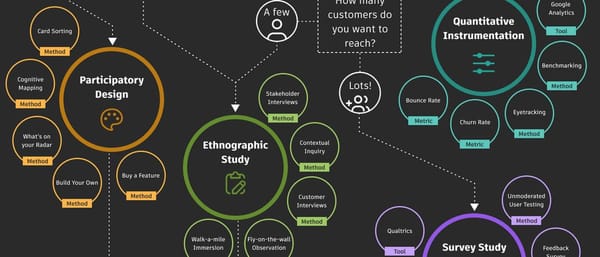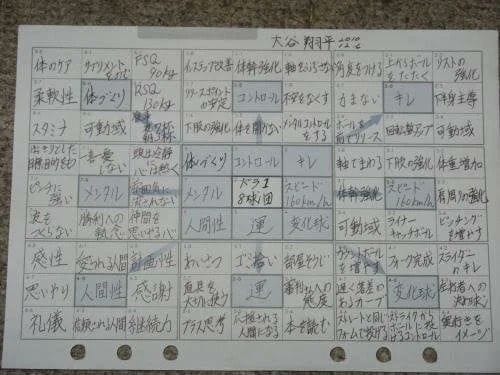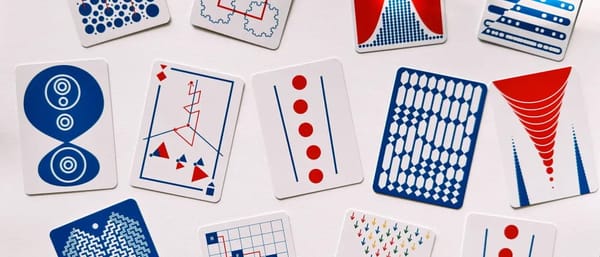№ 87 | 2025 Visual Tracker, Survive the Tyrant! RPG, The Question Matrix, Distance Levels, Professions as Thinking Tools, and Diversity Rocks Conversation Cards

Enjoy!
Okay, onto this issue’s finds…
2025 Visual Tracker
We’re more than three weeks into a new year—what have you done so far? I feel as if our quick response to this question tends toward the negative (I know this is the case for me!), which makes tracking all the little things we do—from meeting with friends to sending out that job application–all the more important to track. This Mural visual tracker from the amazing Laïla von Alvensleben is a delightful way to track, and remind yourself of, all the things you’re doing! And after watching Laïla's video recap of her 2024 (and the ways she's modified this tool) I’m inspired 🤩 to put this into practice for myself.
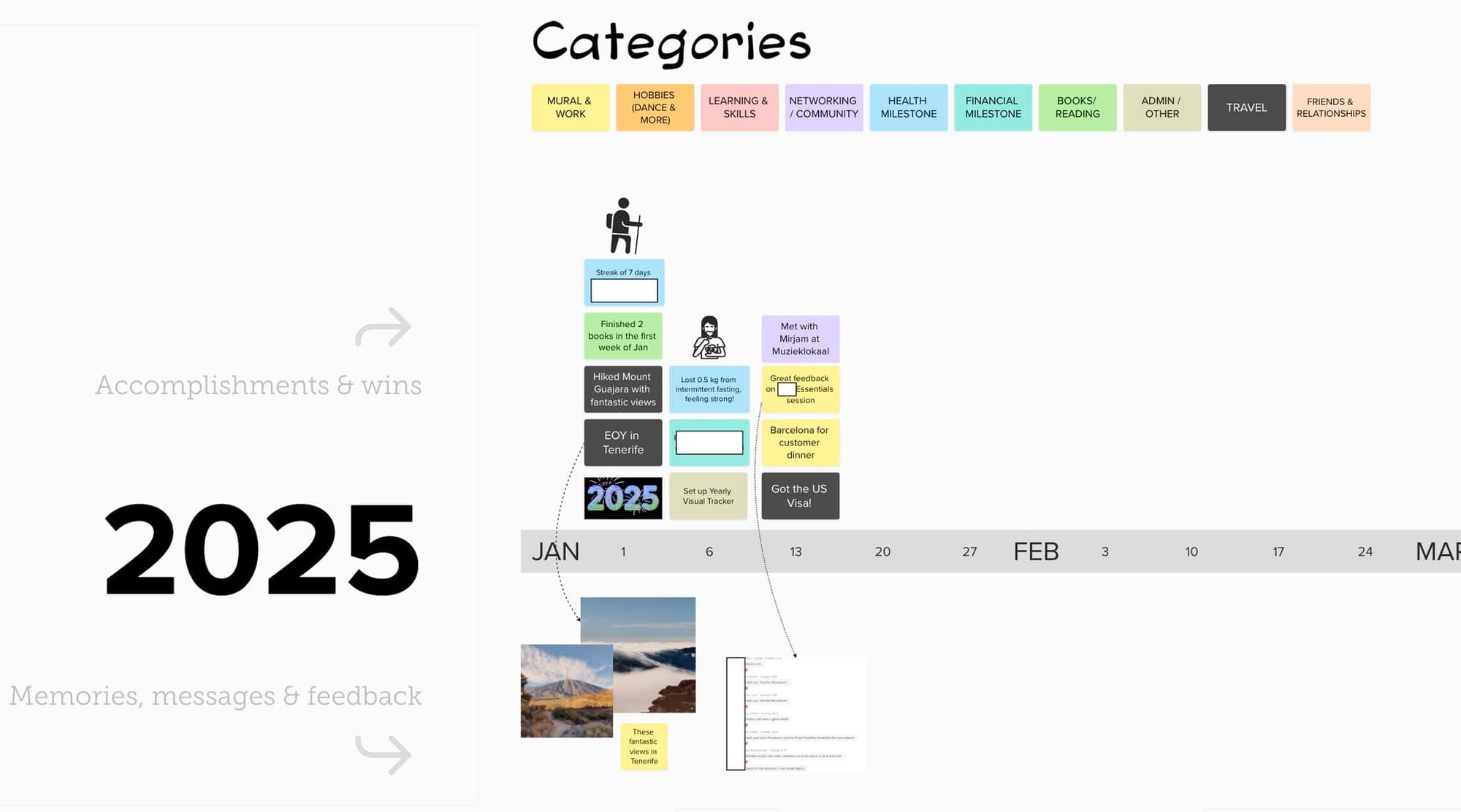
Survive the Tyrant!
For no particular reason, here’s “an RPG-style guide for surviving an authoritarian and oppressive regime.” As with the “Real Life Character Sheet” challenge a few months ago, I love how a very serious thing can be made more approachable with a playful wrapper.
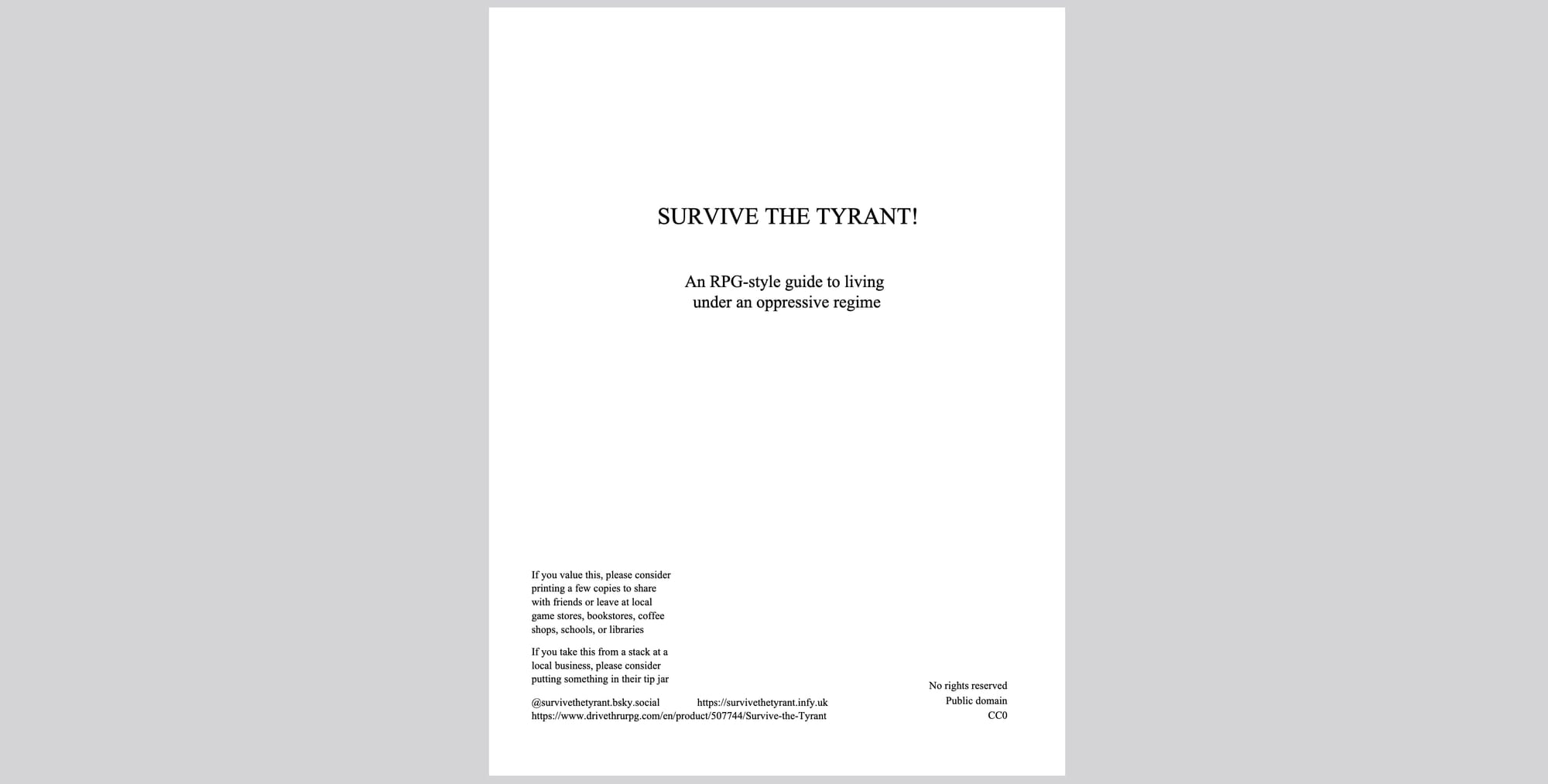
The Question Matrix
Weird. I came across The Question Matrix twice this week, in two very different contexts. One, on Pinterest of all places; the other a [LinkedIn] post from Lennart Nacke on how to “level up [LLM] prompting using the question matrix.” 🤨🤪
I think a lot about how to formulate questions—what’s makes phrases like “How might we…?” and “What if…?” so powerful? But, I’ve never considered stepping back abstracting viewing a range of questions in a matrix like the one pictured here:
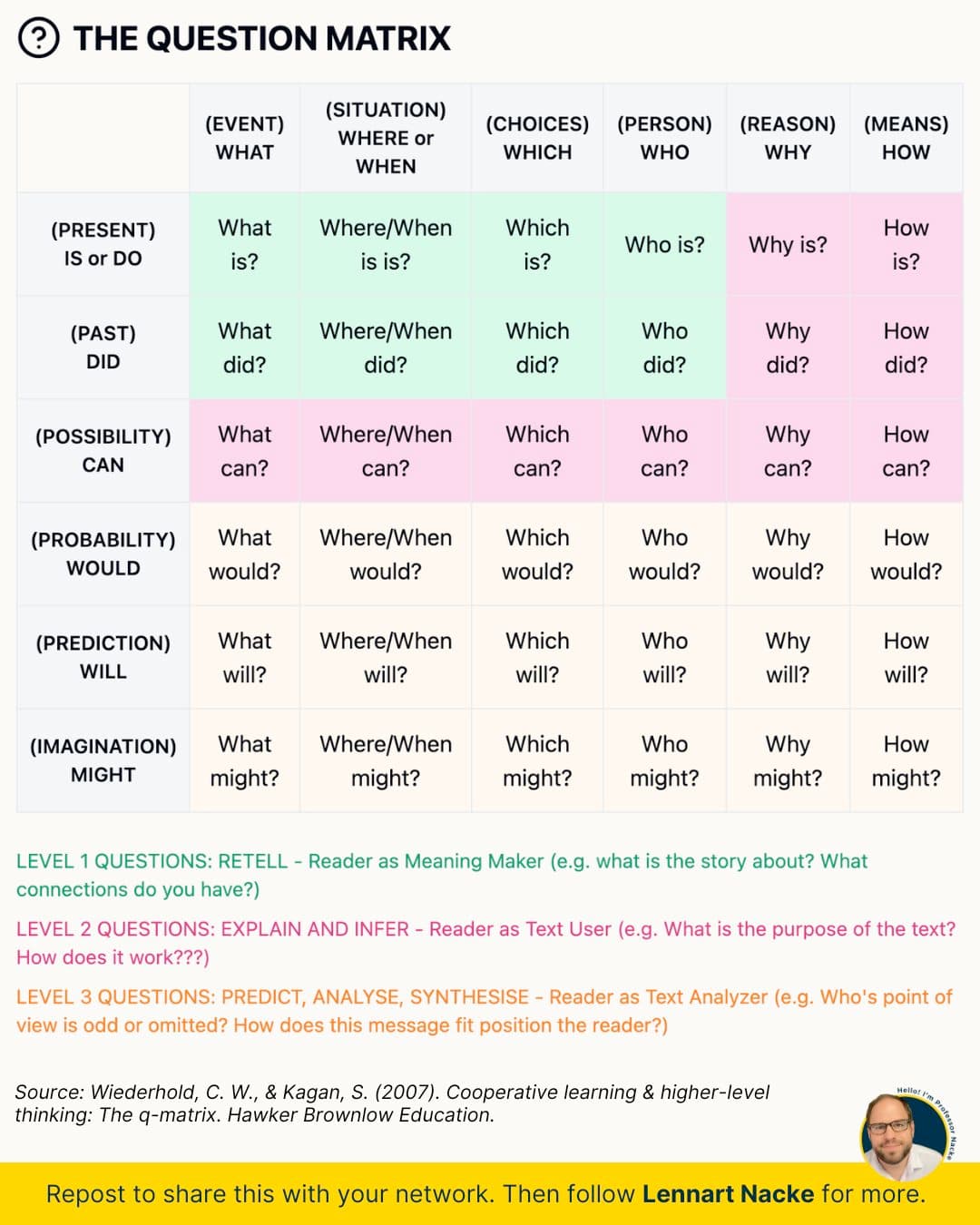
I might revisit some of the more powerful phrases I’ve collected over the years, and see how they align to this matrix… 🤔
Distance Levels
I recall my joy, a few years back, at learning about diegetic and non-diagetic sounds in film—and the even more fascinating use of trans-diagetic sounds! Now I can’t watch a movie without noticing when the music is part of the character’s reality, or not. Anyway… Here’s a similarly themed paper that “‘distance levels’ for analyzing the shifting relationships between players and in-game characters in board games.” Now, I’m left thinking about the many board games I play, and my ‘role’ in each game. And more relevant, when designing a learning game or business game, how might I explore the effects of intentionally playing with these relationships?

Professions as Thinking Tools
Here’s another essay that gets you thinking! “Twenty-Five Useful Thinking Tools” looks at 25 different professions in terms of their approach to problem solving.
Most people define professions by what those professions do. Engineers build things. Economists study money. Psychologists look into people’s minds.
However, while this is an obvious distinction, I’m more interested not in what types of problems professions try to solve, but how they try to solve them. Here, we can uncover a wealth of different thinking tools that are often abstract enough to apply well outside the typical interest of the profession.
Reading through this, one thing I noticed (other than these generalizations all being highly debatable!) was how similar or dissimilar some of these patterns are; e.g. ‘Scientist’ and ‘Entrepreneur’ approach things in very similar—experimental— way. This prompted an idea and fun thinking challenge: 🫵 Create a visual model to arrange these different professions / ways of thinking.
Diversity Rocks Conversation Cards
Given recent orders to shut down diversity, equity and inclusion (DEI) initiatives within the US federal government, I thought it might be a good time to share these Diversity Rocks Conversation Cards from diversity consultant Liz Crutchley. Here’s a podcast conversation with the creator, where among other things, she emphasizes something I say a lot: It’s really just about opening and holding space for dialogue. Cards. Games. Role-playing. Well-formed questions. Journaling. Whatever!

Cheers!
Stephen


